South Africans vote in watershed election as ANC could lose majority

South Africans have begun voting at schools, community centres and in large white tents set up in open fields in an election seen as their country’s most important in 30 years – and its seventh since apartheid.
At stake is the three-decade dominance of the African National Congress (ANC) party, which led South Africa out of apartheid’s brutal white minority rule in 1994.
It is now the target of a new generation of discontent in a country of 62 million people – half of whom are estimated to be living in poverty.
After casting his vote, president Cyril Ramaphosa said he had no doubt his ANC would win with a majority and remain in government.
Africa’s most advanced economy has some of the world’s deepest socio-economic problems, including one of the worst unemployment rates at 32 per cent.
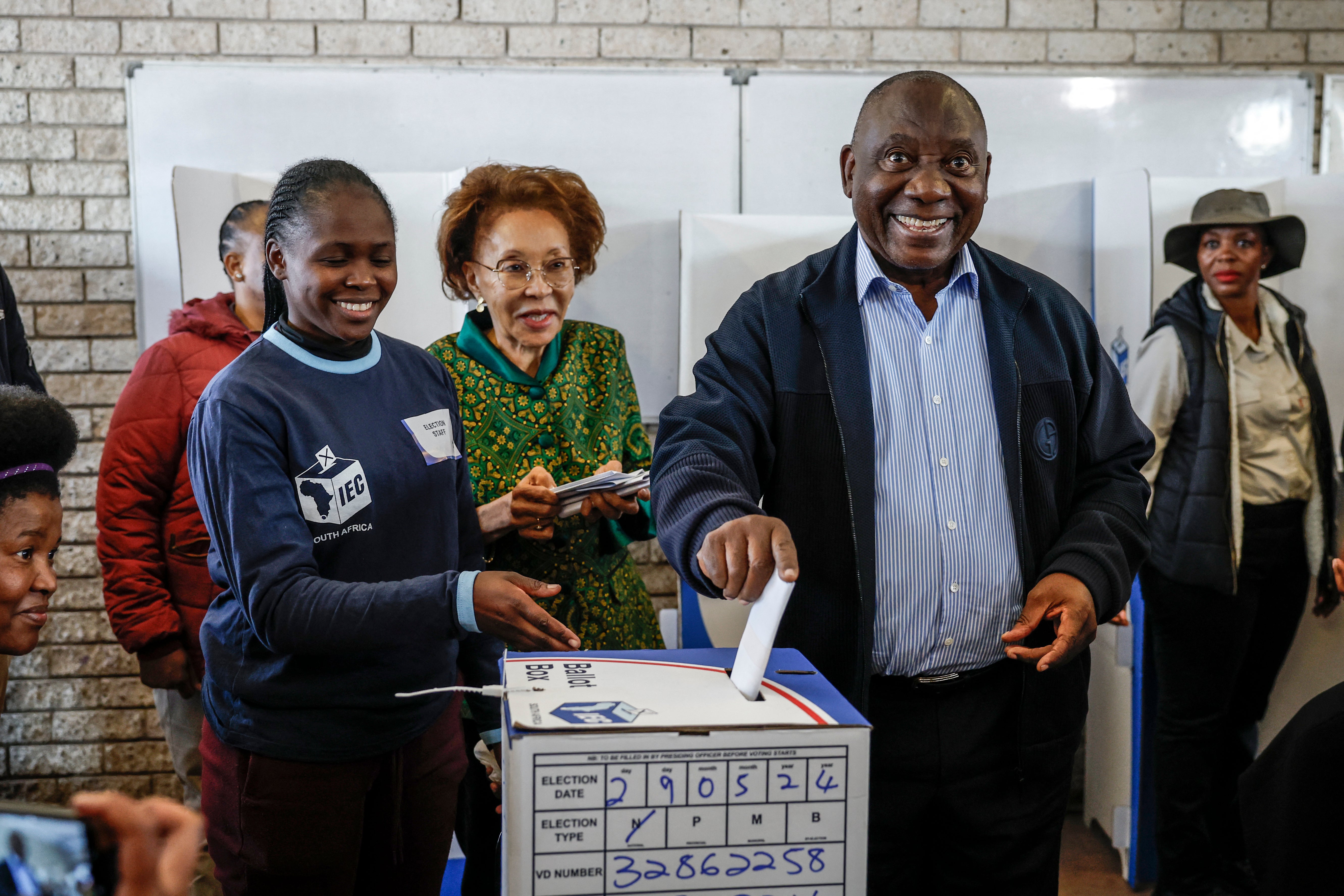
The lingering inequality, with poverty and joblessness disproportionately affecting the black majority, threatens to unseat the party that promised to end it by bringing down apartheid under the slogan of a better life for all.
“I take voting as something serious because as communities, it is difficult to complain about services when you have not voted,” said Samuel Ratshalingwa, who was near the front of the queue at the same school in the Johannesburg township of Soweto where Mr Ramaphosa voted.
“Our main issue here in our community is the lack of jobs. We have to use the vote to make our voices heard about this problem,” said Mr Ratshalingwa.
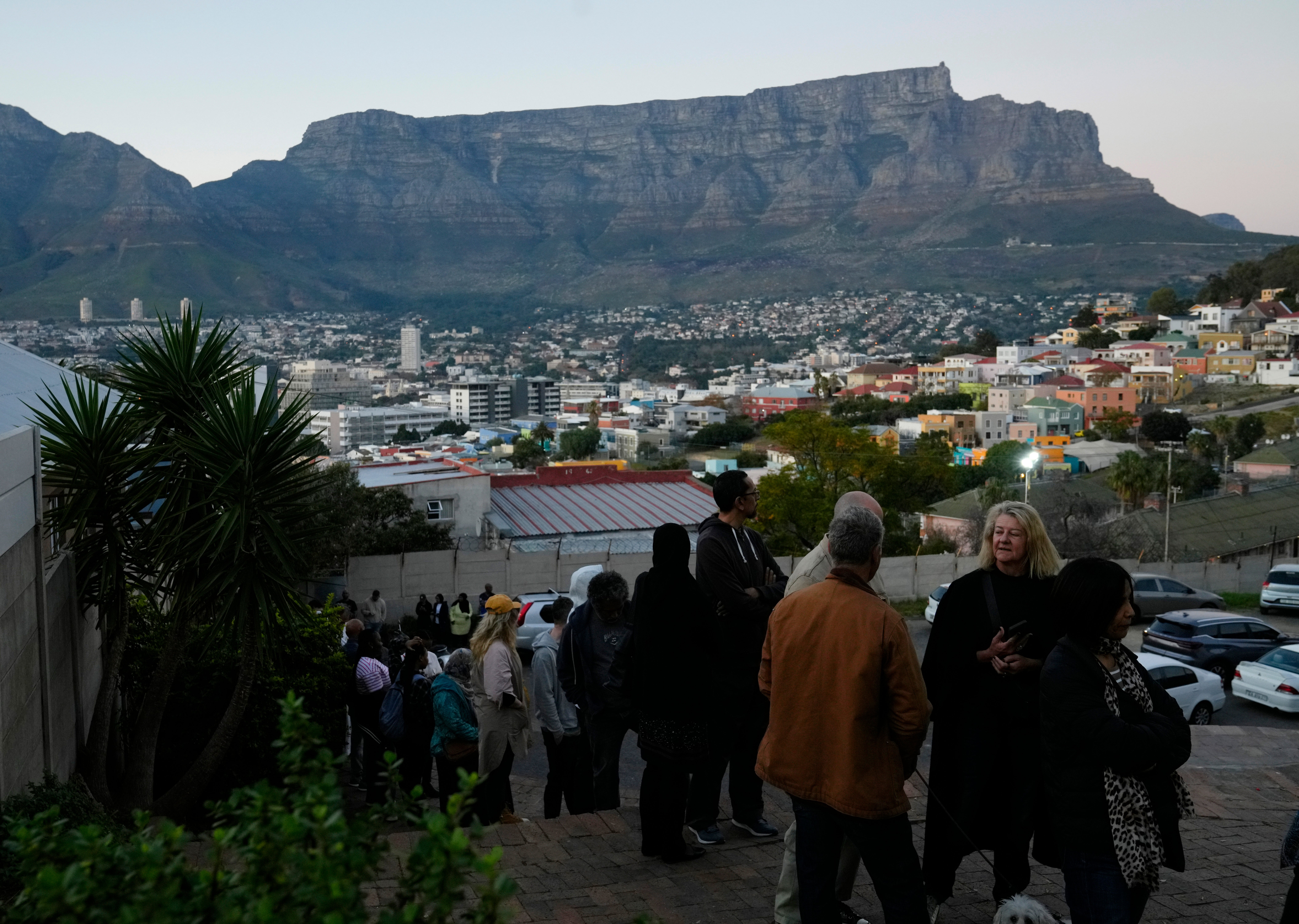
After winning six successive national elections, several polls have the ANC’s support at less than 50 per cent ahead of this one, an unprecedented drop.
It might lose its majority in parliament for the first time, although it is widely expected to hold the most seats.
The ANC won 57.5 per cent of the vote in the last national election in 2019, its worst result to date and down from a high of nearly 70 per cent of the vote 20 years ago.
Mr Ramaphosa, leader of the ANC, has promised to “do better”.
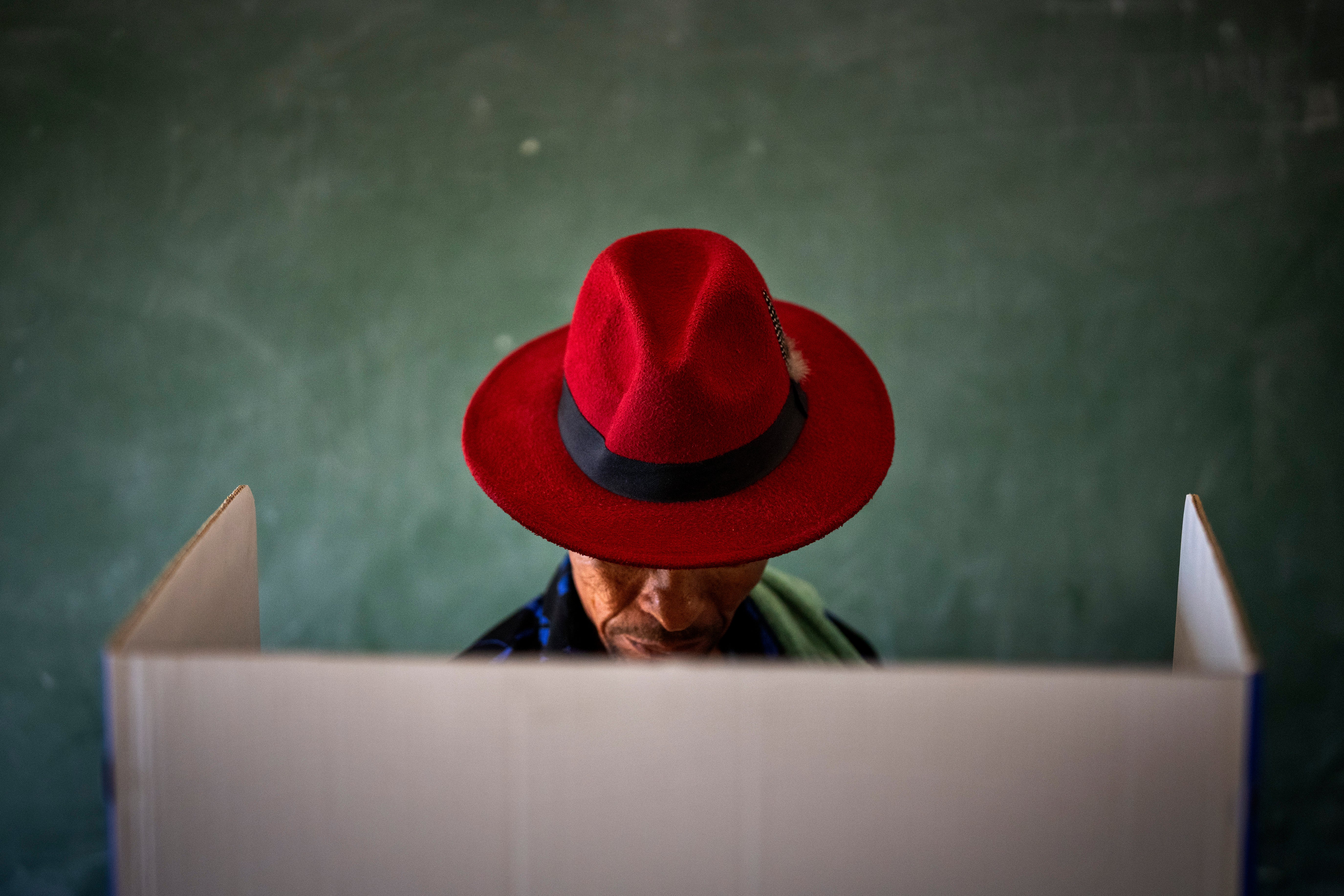
The 71-year-old sat alongside other voters in Soweto, where he was born, before voting. He said he was certain South Africans would give the ANC “a firm majority”.
Any change in the ANC’s hold on power could be monumental for South Africa; if it loses its majority, the ANC is likely to face the prospect of having to form a coalition with others to stay in government and keep Mr Ramaphosa as president for a second term. The ANC has always had a majority in parliament since 1994.
Final results are expected by Sunday.
Opposition to the ANC in this election is fierce but fragmented. The two biggest opposition parties, the Democratic Alliance (DA) and the Economic Freedom Fighters (EFF), are not predicted to increase their vote by anything near enough to overtake the ANC.
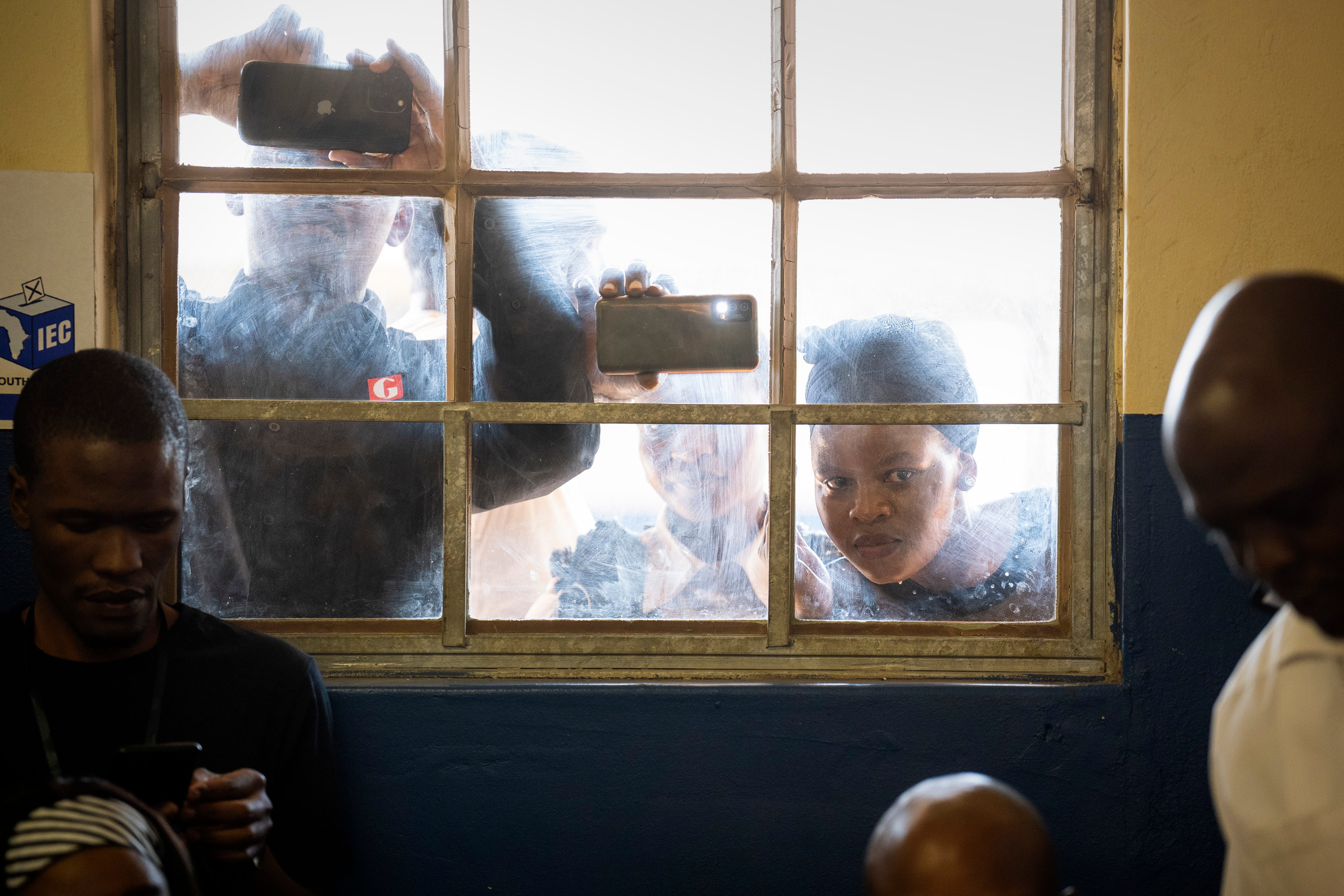
Disgruntled South Africans are moving to an array of opposition parties; more than 50 will contest the national election, many of them new. One is led by South Africa’s former president Jacob Zuma, who has turned against his former ANC allies.
The ANC says it is confident of retaining its majority and analysts have not ruled that out, given the party’s unmatched grassroots campaigning machine.
“I woke up at 4am this morning, took a bath and made my way,” said 68-year-old Velaphi Banda, adding he has voted for the ANC since 1994 and would do so again.
Memories of the era of apartheid, and the defining election that ended it in 1994, still frame much of everyday South Africa. But fewer remember it as time goes on, and this election might give voice to a younger generation who were not born when apartheid fell.
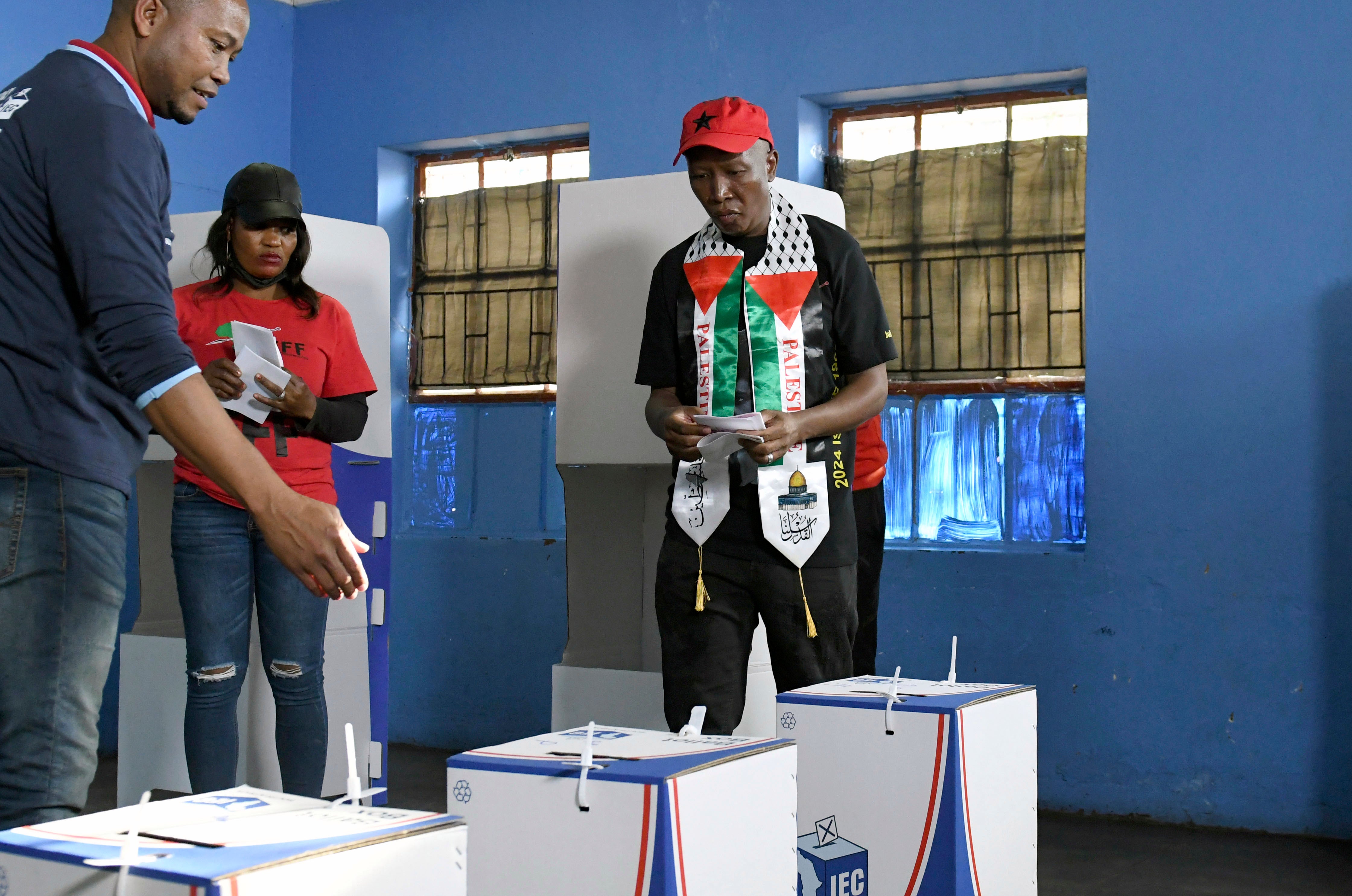
South Africa has since held peaceful and credible elections. It will deploy nearly 3,000 soldiers across the country to ensure a peaceful election.
While 80 per cent of South Africans are black, it is a multiracial country with significant populations of white people, those of Indian descent, those with biracial heritage and others. There are 12 official languages. It is the diversity that Nelson Mandela, South Africa’s first black president, highlighted by referring to his country as a “rainbow nation”.





